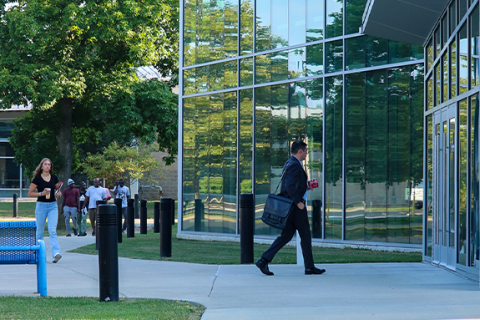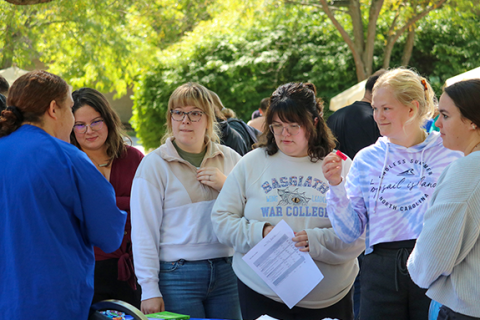Unusual Enrollment History
Has your Student Aid Report been flagged?
Don't let this stop you.
The U.S. Department of Education has established regulations to prevent fraud and abuse in the Federal Pell Grant and Direct Loan Programs by identifying students with "unusual enrollment histories". Some students who have an unusual enrollment history have legitimate reasons for their enrollment at multiple institutions. However, such an enrollment history requires the Office of Financial Aid to review your file in order to determine future Federal financial aid eligibility. If selected by the Department of Education, this must be resolved before you will receive financial aid.
What is an unusual enrollment history?
Unusal Enrollment History (UEH) involves the specific pattern the Department of Education uses to select students, including those students who have received a Federal Pell Grant and/or Federal Loans at multiple institutions during the past four academic years. Once the Department of Education indicates that a student has an unusual enrollment history, the Office of Financial Aid must review the academic history prior to determining federal financial aid eligibility for that student.
Students with an unusual enrollment history will have one of the following UEH flags and C codes on their Student Aid Report (SAR) issued by the Department of Education upon completion of the processing of your FAFSA.
| UEH Flag Value | Comment Code | Description | School Action Required |
|---|---|---|---|
| 2 | 359 | Possible enrollment pattern problem | School must review enrollment/academic and financial aid records for past four award years. |
| 3 | 360 | Questionable enrollment pattern | School must review enrollment/academic and financial aid records for past four award years. |
If selected by the Department of Education, the Office of Financial Aid will notify you by mail. You will be required to submit transcripts, official or unofficial or grade reports for all institutions attended in the last four years for review and a completed Unusual Enrollment History Appeal Form. If you did not earn academic credit at each institution you attended during the period of review, you will be required to submit a personal statement and third party documentation to support your statement. No financial aid will be awarded or disbursed until all documentation is received and reviewed.
What happens when a UEH appeal is approved.
If the UEH review and/or documentation supports that the student did earn academic credit at EACH institution attended during the review period (i.e. not enroll in multiple institutions solely to obtain the credit balance payment of financial aid,) then the student is eligible for Federal financial aid. The Edison State Community College Office of Financial Aid will document its determination and process the student’s financial aid accordingly.
Can I regain federal student aid eligibility?
Students whose aid eligibility is denied as a result of the Unusual Enrollment History can be reconsidered for federal student aid in future semesters by completing the following steps:
- Successfully complete a minimum of 6 credit hours in courses required by your academic program at your own expense, without the benefit of Federal Student Aid through Edison State. Successful completion of a class is defined in the Satisfactory Academic Progress Policy.
- Do not drop or withdraw (officially or unofficially) from any courses after the term begins.
- Meet all requirements of the Satisfactory Academic Progress Policy; i.e. 2.0 CGPA, minimum 67% completion rate, do not exceed the maximum time frame to complete your program (150% rule.)
- Submit a new Unusual Enrollment History Appeal Form.
- Meet with your academic advisor to review your student plan and provide a signed copy with your new UEH Appeal form.
When a student regains eligibility under these provisions, eligibility for Federal Pell Grants, Direct Student Loans, Direct Parent Plus Loans and all other Federal student aid programs, including student employment, begins in the period of enrollment during which the student regained eligibility.








